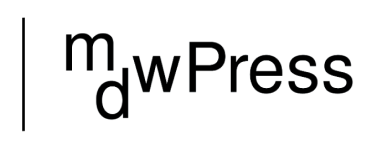New web address!
From now on we use: https://ijmm.world/ijmm
Call for Contributions
DOING MUSIC MEDIATION
International perspectives on a multi-faceted practice
Music mediation is a cultural practice that aims to establish diverse relationships between people and musics. To this end, practitioners in the field of music mediation – e.g. music mediators, music educators, instrumentalists, composers, teaching artists, curators, or concert designers – produce a wide variety of presentational and participatory formats that include novel concert formats (such as moderated or staged concerts, curated music performances and installations, relaxed and inclusive performances, immersive digital or hybrid concerts), concert-related activities (such as introduction talks, podcasts, creative workshops, and school projects), community building and outreach projects (including performing in hospitals, hospices, detention centres, and refugee centres, and creating community orchestras/choirs/operas), and various media formats (such as program notes, radio broadcasts, apps, games, podcasts, and other digital or hybrid formats).
Despite being a relatively new practice, music mediation has already garnered substantial research attention. However, most scholarly findings have primarily circulated within national contexts. Recent efforts to internationalize research on music mediation include the publication of the anthology "Tuning Up! The Innovative Potential of Musikvermittlung" (Chaker/Petri-Preis 2022) and the organization of two conferences: "Rencontres Internationales sur les Médiations de la Musique" (Université de Montréal, 2022) and "Turning Social! On the Social Transformative Potential of Music Mediation" (University of Music and Performing Arts Vienna, 2023).
The establishment of the International Journal of Music Mediation (IJMM) aims to build upon these initial steps towards internationalization and to further advance this trajectory. In our inaugural issue, we seek to develop a shared understanding of music mediation and invite contributions that explore the central characteristics of doing music mediation.
Guiding questions can encompass but are not limited to:
1. Definitions:
- What does doing music mediation mean in certain varied national and cultural contexts? What similarities and differences can be observed relating to how doing music mediation is perceived?
2. Theoretical Foundations:
- What theoretical and philosophical assumptions underlie the practice of music mediation?
- How do these conceptual foundations shape and impact the realization of music mediation practices?
3. Comparative Perspectives:
- In what ways does music mediation intersect with other practices such as community music, socially engaged music making, music education, concert design, or audience development?
- What commonalities and distinctions exist between music mediation and these related fields?
4. Historical Development:
- How has the practice of music mediation evolved in different countries?
- What role did/do national cultural policies and public discourses play in shaping the trajectory of music mediation, particularly in terms of cultural participation?
- Which history(ies) of music mediation are told and passed on locally?
5. Specific Practices and Competencies:
- What are the distinctive practices employed in various music mediation formats?
- What competencies are essential for practitioners engaging in these diverse music mediation practices?
6. Practitioners and Framework Conditions:
- Who engages in music mediation, and how do the framework conditions, including organizational structures, policies, and public discourses, influence their work?
7. Personal Goals and Beliefs:
- What individual goals and beliefs underpin the actions of practitioners in the field of music mediation?
- How do these personal goals and beliefs inform and guide their approach to music mediation?
The exploration of these questions will not only enhance our understanding of music mediation on an international level but will also establish the groundwork for additional topics in the International Journal of Music Mediation (IJMM).
We encourage contributions from theoretical, empirical, and artistic research as well as reflections on practice and portraits or interviews with music mediation practitioners. If you are interested in writing a book review or conference report, please contact us with your suggestions.
Deadline for contributions: May 31, 2024

